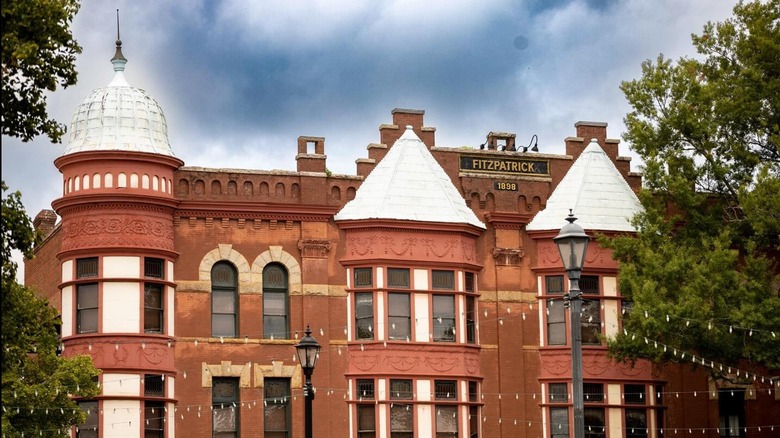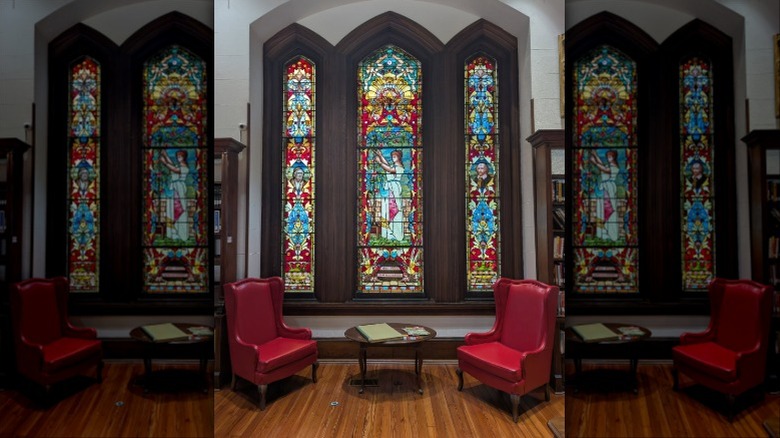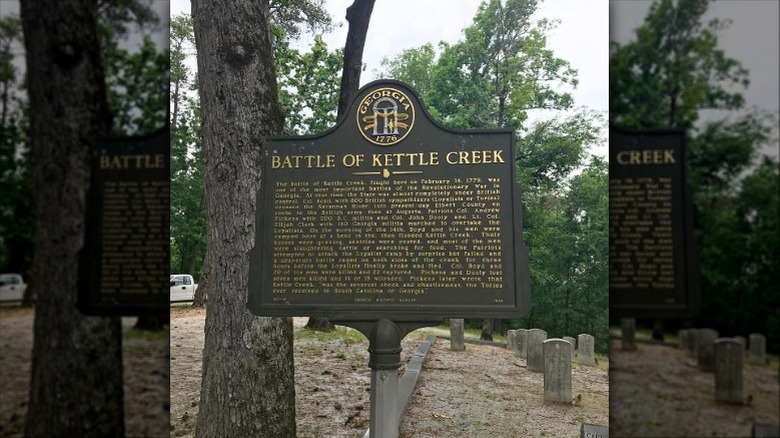One Of Georgia's Oldest Cities Brims With Vintage Charm And A Cute Downtown Near The State's Biggest Cities
One of Georgia's oldest cities is also one of its most historic, thanks to well-preserved antebellum buildings and a rich past dating back to the Revolutionary War. Washington, Georgia, holds the distinction of being the first place in the United States to be named for George Washington, as its founding in 1773 predates the nation's capital by almost 20 years (many call it Washington-Wilkes to avoid confusion). Besides that, it has many historic antebellum homes – more than any other place in the United States per capita – that lend this small town a vintage charm that can't be beat.
It's not just picturesque buildings that make Washington's cute downtown a lovely place to spend time; there's some very real history in this place that was briefly the capital of Georgia in 1780. After all, it was here that Jefferson Davis dissolved the confederacy on May 4, 1865, to usher in the end of the Civil War. Although the building where he did so — the Heard House — no longer stands, visitors can find a plaque commemorating this moment in Washington's main square. There, you'll find brick-lined streets that lead past historic buildings ranging from the antebellum era to the 1920s, which blend in seamlessly with modern businesses like antique shops and collectives selling local artisanal products.
This time capsule of the 18th, 19th, and 20th centuries is just an hour's drive from both Augusta and the state's best college town of Athens. It's also less than two hours from Atlanta, making it a perfect day or overnight trip for anyone looking to immerse themselves in this well-preserved place that Southern Living Magazine named "one of the prettiest small towns in Georgia" in 2017 (via Yahoo).
The history and heritage sites of Washington, GA
While Georgia has no shortage of picturesque small towns, Washington stands out since its downtown alone is home to about 70 historic sites. Possibly the most significant is the Robert Toombs House, the 19th-century home of the former Secretary of State of the Confederacy, who was born just outside of the town. Toombs was one of the state's most important political figures, a passionate secessionist, imploring his fellow senators to "defend yourselves, the enemy is at your door" in 1860. He later helped write the state's constitution during the Reconstruction Era and died in this Washington home.
Today, his well-preserved home maintains signs of Toombs' life, so visitors can imagine what the world was like in the midst of the Civil War and later. The Robert Toombs House is open from Thursday to Saturday, from 10 a.m. to 4 p.m., and is closed Thanksgiving, Christmas, and New Year's Day. At the time of writing, payment is only accepted via cash or check.
Stroll through downtown to marvel at the architectural styles that include Victorian, Romanesque Revival, and Gothic Revival from the 18th and 19th centuries. The Randolph House is where President Woodrow Wilson spent his summers as a child, and the Jackson AME Church was built in 1867 by newly freed formerly enslaved people, the first of its kind in Wilkes County. For a more in-depth look at Washington's historic houses, consider visiting in early April, when the town hosts the Spring Tour of the Homes, or in December during the Christmas Tour of the Homes. Otherwise, you can pick up a map at the Chamber of Commerce to do a self-guided walking tour.
What to do in Washington, Georgia
One of the best ways to experience Washington, Georgia, whose motto is "First in History. Heritage. Hospitality," is to participate in one of its annual events. Revolutionary Days takes place every second weekend in February to celebrate the Battle of Kettle Creek, a major victory for the patriots against the British loyalists in the Revolutionary War. In fact, it was the only place where the patriots won in Georgia, making Wilkes County a unique Revolutionary War site outside the more known historic colonial towns in Virginia.
Every second Saturday in October, Washington hosts Mule Day, a heritage celebration that focuses on Southern life in the 1800s. It takes place at the Callaway Plantation (also known as the Callaway Historic Site), which has maintained its 18th and 19th-century buildings and is open generally for visitors, but, as one Tripadvisor user noted, downplays its dark history.
Washington has several sites linked to the history and heritage of its African-American community, which you can explore on its website. Alternatively, the town's historical museum is in an 1835 house in the middle of downtown, where you'll find an array of Civil War artifacts and get an overview of Washington's long and storied history. If you're feeling peckish after a day of exploring historical sites, consider stopping by The Hot Box, which has 4.8 stars on both Yelp and Tripadvisor, thanks to its perfectly cooked meat and the welcoming hospitality of its staff.


